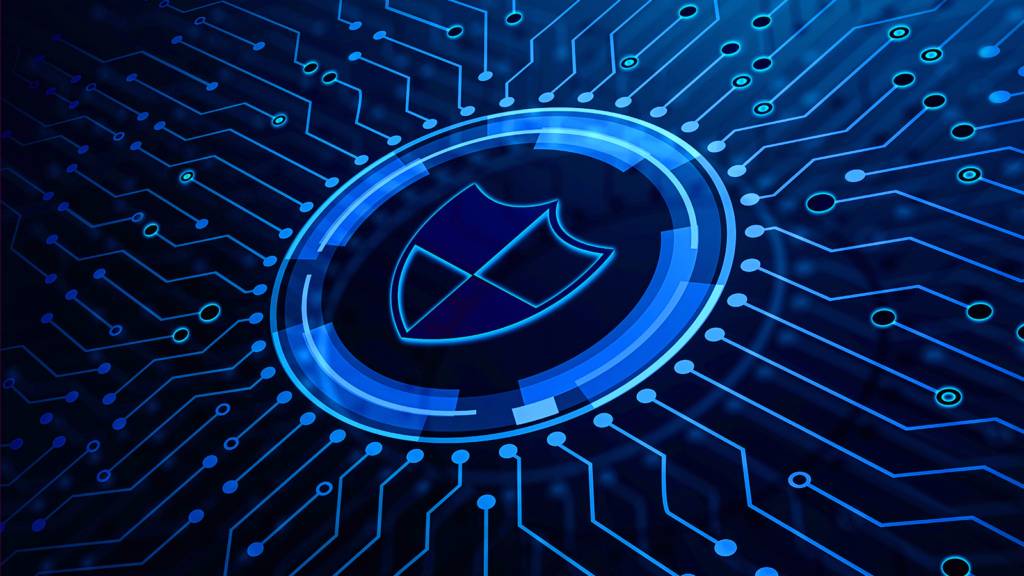In a time of unheard-of digital connection, knowing and protect yourself from hackers has become very critical. Rising in complexity, cybercriminals are continuously creating fresh approaches to compromise security systems and access to private, financial, and corporate data. Safely navigating the digital terrain calls for more than just common sense; it also takes a thorough awareness of the risks together with a tiered strategy of protection. To strengthen your online security and protect your data, devices, and online accounts, this guide offers in-depth study of useful methods, sophisticated approaches, and actionable recommendations.
The goal is to provide you with the skills and information required to reduce your risks and negotiate the internet environment with more assurance and control. This is not only about responding to assaults; it’s also about being proactive and setting protections in place to reduce your risk by knowing more precisely how to secure yourself against hackers.
Table of Contents
Knowing the terrain: The Changing Strategies of Hackers
Before diving into protection tactics, one must first grasp the changing techniques hackers use. The techniques applied are continually seeking for fresh approaches and weaknesses to take advantage of; they are also getting more complex.
- Phishing Attacks: One of the most often utilized techniques by hackers is still phishing. Often meant to seem as though they are from reputable companies, they utilize clever techniques to create quite convincing emails, SMS, or phone calls. The goal is to fool you into disclosing personal information—such as passwords, bank details, or other sensitive data. Anything that sounds dubious should always make you cautious; always use critical thinking before acting on any correspondence you come across.
- Malware: A Wide Range of Threats: Malware is the umbrella word for a broad spectrum of dangerous software comprising viruses, worms, trojans, spyware, adware, and ransomware. Every one of them approaches and seeks various things. These can be difficult to find and eliminate could be distributed via compromised web sites, attachments, or infected downloads. Once on your system, they can compromise your operations, pilfers data, or perhaps takes over your device.
- Password Attacks: Cracking the Code: Using automated techniques such brute-force assaults and dictionary attacks, hackers try to break weak passwords, therefore getting access to your internet accounts. Usually a quite rapid procedure, password hacks are effective when users use weak, readily guessed passwords.
- Social Engineering: Social engineering is the process of guiding people into revealing of personal information or engaging in behaviors endangering their own security. This approach frequently takes use of human psychology, emotions, or inclination to believe people who seem to be in power.
- Man-in-the-Middle Attacks:Eavesdropping on communications, man-in—-middle attacks allow hackers to listen in on talks and maybe pilfers private information by intercepting the connection between two parties. On unprotected public Wi-Fi networks specifically, these kinds of assaults are very common.
- Exploiting Software Vulnerabilities: Seeking fresh weaknesses in operating systems, software programs, and other code, hackers are constantly These weaknesses give the hackers a back entrance into your system, so they will usually be used by them to get to your data and system.
- Denial-of-Service Attacks (DoS/DDoS): Denial-of- Service Attacks (DoS) are those in which too heavy traffic overwhelms systems, networks, or websites therefore rendering them inaccessible to authorized users. Although they do not specifically pilfers your information, they might cause services to be useless and disturb internet activities.
- SQL Injection: Targeting databases, a SQL injection attack lets hackers access or change the contents in the database by inserting harmful SQL code into input fields, hence possibly acquiring sensitive user information.
- Cross-Site Scripting (XSS):In an XSS attack, hackers load harmful code into websites viewable to other users. This may let a hacker compromise the user’s data or session information.
- Drive-By Downloads: Hackers can create websites that, once your visit, instantly install malware onto your machine. Many times, they install the program automatically via a weakness in your browser.
- Supply Chain Attacks: Hackers can enter your system by assaulting the software you use or by adding malware into outside apps or services you have downloaded.
- AI-Powered Attacks: As AI tools evolve, hackers may utilize their powerful AI tools to automate many of their assaults and create increasingly advanced techniques of manipulation and deceit.
Working to defend oneself from hackers depends on knowing the many techniques hackers employ.
Developing Your Defenses: Doable Actions to Guard Against Hacker Attacks
To increase your online security, you should follow these basic and doable actions:
- Building a Fortress with unique, strong passwords:
- One of the most basic things you can do to guard your internet accounts is choosing strong, distinctive passwords. Make sure you choose long, sophisticated, difficult to guess passwords.
- Never use popular terms or phrases; always avoid including any personal information—name, birthdate, etc.—into your passwords.
- Use capital and lowercase characters, numbers, and special symbols always to create a password that is much more difficult to find.
- Never reuse passwords across several accounts as, should one password be exposed, your online data may be totally compromised.
- Without learning difficult passphrases, using a reliable password manager will enable you to generate, save, and manage all of your passwords.
- Fortifying Your Accounts with Two-Factor Authentication (2FA):
- Use 2FA on any account—especially your bank accounts, email, social media, and any other online financial account—whever it is accessible.
- Whenever at all feasible, instead of depending on SMS messaging, you should use a safe authenticator software (likeAuthy or Google Authenticator. Many times not secure, text messages can be hacked through.
- Make sure you also make a backup code for your authenticator app should you misplace your phone, therefore enabling you to access your accounts once again.
- Reversing Phishing Attacks with Skepticism:
- Phishing attempts are continually getting more advanced, hence one should be rather cautious about dubious emails, messages, phone calls, or other correspondence.
- Verify the validity of any email, text, or message you receive; be wary of anyone demanding personal or financial information.
- Click on no links, attachments, or download any files that come to you from an untrusted source.
- Rather of depending on links in emails or text messages, always log in to websites or applications straight-forward. Usually under control by hackers, these drive you to a dangerous website.
- The Value of Maintaining Software Updates :
- Older programs can have security flaws that hackers could take advantage of, hence they can be readily targeted. Keeping your operating system, software programs, and web browsers current is thus rather crucial.
- Whenever you can, make sure you activate automatic updates so that fresh security fixes are implemented right away upon release. This also covers allowing updates for the program on your cell phone.
- Particularly pay close attention to any security upgrades that come out and implement right away. Delay any software upgrades; this will raise your susceptibility.
- Blockware Prevention using Antivirus Software:
- The foundation of your security system is definitely reliable antivirus software. These tools are meant to find, identify, and eliminate a broad spectrum of malware risks from your machines.
- Maintaining an updated antivirus program and making sure real-time scanning is constantly turned on will help to guarantee a constant degree of protection.
- Periodically doing a manual scan of your system helps you to find viruses that could have escaped notice by real-time scanning.
- Using a firewall to address network security:
- Between your computer or network and the outside world, a firewall offers a defense barrier. It achieves this by preventing any illegal access, therefore lowering the attack risk.
- Install a third-party firewall solution or activate the built-in firewall included with your operating system; next, be sure you grasp the settings and how to correctly adjust them for your home network.
- Additionally make sure your router has a firewall turned on, which will assist to further guard your home network.
- Securing Your Wi-Fi Network for Wireless Connections:
- Usually the initial point of access for hackers is your home Wi-Fi network, hence it is crucial to guarantee its security.
- Your home Wi-Fi network should always run on a strong and distinctive password. Choose always a lengthy, complicated, difficult to guess password.
- Should your router and gadgets support WPA3 encryption—the most recent encryption method for Wi-Fi—you should always turn on it.
- For critical work, you should also refrain from utilizing public Wi-Fi and substitute a VPN for extra protection. Many times insecure, public Wi-Fi networks may be readily hacked.
- Exercising Caution on Social Media Platforms:
- Hackers mostly target social media, hence you should be rather careful what you put on these channels.
- Share personal information carefully; this can be used to target you in phishing campaigns and other forms of social engineering frauds.
- Additionally avoid clicking on dubious links or engaging in games and tests as they may all be exploited to expose your personal data.
- Any direct communications from untrusted sources should be quite cautious; never click on a link unless you are quite convinced it is authentic.
- The Importance of Regularly Backing Up Your Data:
- Protecting your data in should of a cyberattack, ransomware, or device failure depends on regular data backups. Many people overlook this, however it’s one of the most crucial steps you can do to guard your data.
- Always backup your data either to a cloud storage facility or an external disk. Make sure you have several copies of your important data and confirm that the backups are really operating as expected.
- Should a data breach, hardware failure, or ransomware assault strike, backups can be quite helpful.
- Minimizing Risks by Limiting Software Downloads:
- Download programs from official sources, like the official app store or the official website of the program you are using alone.
- Free or pirated versions of programs should always be avoided as they are frequently compromised with viruses. Downloading an unauthorized or pirated version of a software program usually does not pay out the danger in terms of few bucks saved.
- Cultivating Skepticism for Enhanced Security:
- Among the most useful weapons in your security toolkit is learning to have a reasonable degree of doubt. This will enable you to spot and steer clear of phishing attempts as well as challenge unreliable communications.
- Always check the material you come across; be wary of anyone asking for personal or financial data or demanding quick response.
- Actively Monitoring Online Accounts for Anomalies:
- Check all of your internet accounts often for any illegal activity or account setup changes. Should you spot anything odd, you should look at it right away and act to protect your accounts.
- You should also turn on alerts for any account modifications so that you could be informed about any dubious behavior.
Your security will have been much enhanced and your threats will have been much reduced by using these fundamental techniques.
Taking Your Security Further: Novel Approaches for Improved Protection

These sophisticated steps can help customers seeking more than just basic protection strengthen their system:
- Using a Virtual Private Network (VPN): By use of a VPN, your internet traffic is encrypted and a safe conduit for your conversations is made possible. Particularly on unprotected public Wi-Fi, this will assist to safeguard your online privacy and security.
- Leveraging DNS Protection for Increased Privacy: Using a safe DNS service, such Cloudflare or Google DNS, can give your surfing even more security and privacy as these services have built in safeguards.ave built in protections.
- Hardware Security Keys: An Extra Layer of Security: Hardware security keys are a physical device a significantly more secure alternative to SMS-based two-factor authentication that may offer an extra layer of protection for your online accounts.
- Using Privacy-Focused Browsers: Often more secure than other browsers because of their built-in security and privacy features, privacy-oriented browsers like Brave or Firefox are meant to guard consumers’ privacy.
- Network Monitoring: Use technologies that track your network activity for any odd traffic to often notify you of the presence of malware or harmful applications trying to interact across your network.
- Regular Audits: Identifying weak points and areas of risk you may then work to strengthen by routinely auditing your online security and digital presence.
- Operating System Tools: FFamiliarize yourself with the operating system tools and features available on your phones and computers as these tools are usually meant to offer a first degree of protection.
Using these cutting-edge security techniques will enable you to create a far greater general degree of safety.
Maintaining Long-Term Protection: The Key is Constant Information and Proactive Approach
To keep your security in the always changing realm of cybersecurity, you have to be proactive and be educated:
- Staying Updated:Maintaining awareness of fresh risks and enhancing your general security requires keeping informed on cybersecurity news sites, blogs, and podcasts.
- Educating Yourself: To keep proactive and to prevent being caught off guard, keep learning about security best practices and new kinds of assaults.
- Being Proactive: Always be proactive; keep reviewing your security policies and keep current on fresh developments.
- Talk to Others: Talk to others about internet security so you may share your expertise and enable them to be safer and more secure.
- Share Information:Share knowledge about phishing efforts, frauds, or threats to aid your friends and coworkers as well as to keep your community secure.
This kind of thinking can enable you to significantly increase personal security and assist with others protection as well.
Acting Immediately: What Should You Do Should You Suspect a Hack?
Should you believe you have been hacked, you have to act right away to minimize the damage:
- Changing Passwords: Right now update the passwords on every one of your internet accounts. Your banking and other financial accounts depend mainly on this.
- Enable 2FA: Wherever you can, enable two-factor authentication to provide your accounts even more protection.
- Scanning Devices: Run a complete system scan with a respectable antivirus program.
- Contacting Service Providers: Should any accounts have been compromised, you should immediately notify your service providers (bank, credit card etc) and document any odd behavior.
- Reporting the Incident: Notifying any cybersecurity events to the relevant authorities or your local law enforcement agency is advised.
- Monitor Your Credit: Check your credit records for any illegal conduct suggestive of identity theft.
- Notify Contacts: Notify your contacts of any possible hacks or should you believe their data has been compromised?
By taking immediate action, you can greatly reduce any harm or damage caused by a security breach.
Conclusion
Preventing hackers calls for constant awareness, alertness, and proactive security techniques. Understanding the techniques hackers employ and putting a thorough security plan into effect can help you negotiate the digital terrain with more confidence and safety, therefore optimizing the advantages of technology without needless danger. It’s not only about responding to security lapses; it’s also about creating a security strategy and acting early to stop them from starting. Following the advice in this book will help you to keep safe and build a solid security posture.
FAQs
Q1: What is phishing, and how can I spot it?
A: Usually via phoney emails, messages, or websites, phishing is a cybercrime in which hackers try to fool you into handing up personal data. Uninvited communications asking for your personal information should be avoided.
Q2: Describe malware, then provide how I could avoid it.
A: Among malware include worms, spyware, viruses, and ransomware. Install antivirus programs, maintain your programs current, and exercise careful online download behavior.
Q3: Why is two-factor authentication (2FA) so crucial?
A: Usually utilizing a code texted to your phone in addition to your password, A: 2FA gives your accounts an additional degree of protection. Hackers will thus find it far more difficult to access your accounts.
Q4: What qualifies a password as strong and safe?
A: Strong passwords are unique for every one of your accounts and long, sophisticated using upper and lower case letters, digits, and symbols. Use a password manager; stay away from personal information.
Q5: How frequently should I change my programmes on my computers?
A: To be sure you have the most recent security fixes, you should routinely upgrade your operating system, online browsers, and software apps. Whenever at all feasible, enable automatic updates.
Q6: Why is it critical and when should I use a VPN?
A: Particularly on public Wi-Fi, encrypt your internet traffic with a VPN to improve your privacy and security and lower your chance of a man-in—the-middle attack.
Q7: What steps should I take if I suspect I’ve been hacked?
A: Change your passwords right away; turn on 2FA; run antivirus scans on your devices; then, let your service providers know about the occurrence.
Q8: Explain social engineering; then, how can I prevent it?
A: Social engineering is the process by which hackers induce individuals to expose their data or act in ways compromising their security. Refrain from inquiries that call for quick response or that prey on your feelings.



